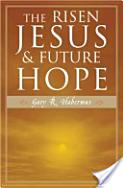Many believers have taken this verse as a complete prohibition against engaging in any type of philosophical study. Others have understood the verse to be speaking about the specific philosophy of Gnogoticism that had begun penetrating the thinking of some of the saints in Colosse. Regardless of one's personal position, there is no doubt that philosophy needs to be respected for its potential spoiling capacity. Paul's knowledge of Epicurean and Stoic Philosophy, including his ability to quote their own poets in Acts 17, indicates that it is possible for believers to engage in philosophical pursuits without being spoiled by them.
In their book, Introduction to Philosophy: A Christian Perspective, Norman L. Geisler and Paul D. Feinberg argue that philosophy can contribute to the understanding of one's faith. Geisler and Feinberg assert, "Christianity can stand up to the intellectual challenges mounted against it. The result of such a challenge should not be the loss of faith, but the priceless possession of a well-reasoned and mature faith."(2) When one considers the number of disciplines that are impacted by philosophical inquiry, it becomes apparent that even Mid-Acts Dispensationalists utilize aspects of philosophical argumentation when supporting doctrinal positions. Ethics, Social and Political Philosophy, Asthetics, Logic, Philosophy of Religion, Philosophy of History, Philosophy of Science, Epistemology, and Metaphysics, are all subjects that are impacted by philosophical study.(3)
Theology, whether it be Dispensational, Systematic, Covenant, or Historical, cannot make any assertions without utilizing the laws of logic. Believers who claim, "logic does not apply to God," defeat their own argument because they use logic in making such as statement. Therefore, logic is unavoidable. Grace Believers cannot argue that Covenant or Charismatic Theology is wrong without utilizing the laws of rational thinking because the basis of all logic is that some statements are true and others are false.(4) At this point, some might raise the following objection, "using logic puts logic before God." Believers need to make a distinction between the order of being, and the order of knowing. "In the order of being. God is first; but in the order of knowing, logic leads us to all knowledge of God. God is the basis of all logic (in the order of being), but logic is the basis of all knowledge of God (in the order of knowing)."(5) Without God, nothing could have existence. Logic comes from God not God from logic.
In the end, believers cannot escape engaging in philosophical thinking; however, we are still warned not be spoiled by it. In Romans One, mankind corrupted the knowledge of God and became fools, by professing themsleves to be wise. In 1 Corinthians 1:22, Paul writes, "For the Jews require a sign, and the Greeks seek after wisdom:" The Greek's attitude toward wisdom is demonstrated in Acts 17:21 where Luke comments that the sole passion of the Athenians was "either to tell, or to hear some new thing." Herein lies the problem with an unchecked affection for philosophy-- it pampers the flesh and entices the mind. Human wisdom seeks to utilize logic to explain the existence of all things without acknowledging the source of the very logic it extolls as the source of all truth and reality. 1 Corinthians 1:21 teaches that God in his wisdom created a situation whereby man by his own ability to reason could never know God.
For believers philosophy is both a necessity and an ever present danger. When one finds oneself elevating human reason and viewpoint above the word of God rightly divided, should run for the nearest mental exit, to escape being ensnared and spoiled by vain deceit!
Footnotes
1) Strong's Concordance
2) Geisler, Norman. and Paul D. Feinberg. Introduction to Philosophy: A Christian Perspective (Grand Rapids: Baker Book House, 1990), 23.
3) Ibid., 23-37.
4) Geisler, Norman. and Ronald M. Brooks. Come Let Us Reason: An Introduction to Logical Thinking. (Grand Rapids: Baker Book House, 1989), 15-16.
5) Ibid., 17.


























No comments:
Post a Comment